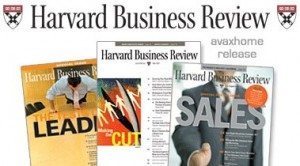In the seventeenth century, the French statesman Cardinal Richelieu relied heavily on the advice of Father François Leclerc du Tremblay, known as France’s ‘éminence grise’ for his grey monk’s habit. Like the famous cardinal, today’s business leaders have their grey eminences.
To understand what they do to merit that money, the Harvard Business Review conducted a survey of 140 leading coaches and invited five experts to comment on the findings. Their views and opinions were mixed, reflecting the contradictions that surfaced among those surveyed.
Commentators and coaches alike felt that the bar needs to be raised in various areas for the industry to mature, but there was no consensus on how that could be done. However, they did generally agree that the reasons companies engage coaches have changed. Ten years ago, most companies engaged a coach to help fix toxic behaviour at the top. Today, most coaching is about developing the capabilities of high-potential performers. As a result of this broader mission, there’s a lot more fuzziness around such issues as how coaches define the scope of engagements, how they measure and report on progress and the credentials a company should use to select a coach.
 Do companies and executives get value from their coaches? When we asked coaches to explain the healthy growth of their industry, they said that clients keep coming back because “coaching works”. Yet the survey results also suggest that the industry is fraught with conflicts of interest, blurry lines between what is the province of coaches and what should be left to mental health professionals and sketchy mechanisms for monitoring the effectiveness of a coaching engagement.
Do companies and executives get value from their coaches? When we asked coaches to explain the healthy growth of their industry, they said that clients keep coming back because “coaching works”. Yet the survey results also suggest that the industry is fraught with conflicts of interest, blurry lines between what is the province of coaches and what should be left to mental health professionals and sketchy mechanisms for monitoring the effectiveness of a coaching engagement.
Bottom line: coaching as a business tool continues to gain legitimacy, but the fundamentals of the industry are still in flux. In this market, as in so many others today, the old saying still applies: buyer beware!
Here’s a final thought to end with:
The ingredients of a successful coaching relationship – is the executive highly motivated to change?
Yes: executives who get the most out of coaching have a fierce desire to learn and grow.
No: do not engage a coach to fix behavioural problems. Blamers, victims and individuals with iron-clad belief systems don’t change.
